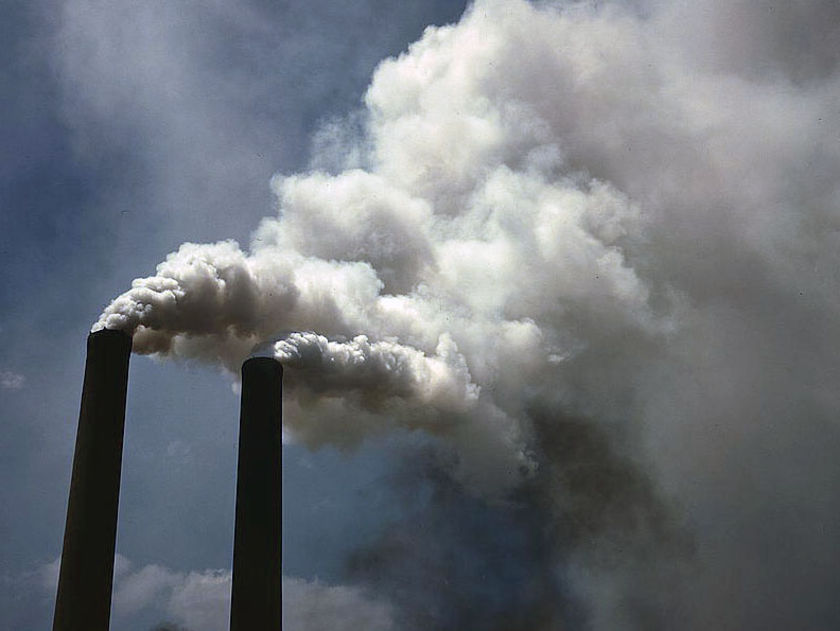No Copenhagen breakthrough, now up to heads of state
 Copenhagen, Dec 15 : With just a few hours left before heads of state from around the world start addressing the climate summit, there was still no sign of a Copenhagen Agreement Tuesday. The best that over 100 environment ministers assembled here have achieved is to avert a collapse of the UN conference.
Copenhagen, Dec 15 : With just a few hours left before heads of state from around the world start addressing the climate summit, there was still no sign of a Copenhagen Agreement Tuesday. The best that over 100 environment ministers assembled here have achieved is to avert a collapse of the UN conference.
A collapse looked a strong possibility during intense closed-door negotiating sessions between government delegates overnight, with rich nations sticking to their point that they would not do anything more to avert climate change unless emerging economies agreed to international inspections of their own actions.
This was rejected once more by China, India and South Africa, according to a delegate who was at some of the meetings. To add to that, the group of African countries and the Alliance of Small Island States (AOSIS) wanted to walk out of the negotiations once more, because their concerns were not being addressed.
Then the emerging economies "saved the day", India's Environment Minister Jairam Ramesh told IANS.
Delegates said Ramesh and environment ministers from China, Brazil and South Africa held separate meetings with other developing country groups and persuaded them to stay on and participate in the negotiations.
But the negotiations kept going backwards, with six new draft treaties presented overnight. Months of meetings will follow if all of them are to be considered.
Of them, the "BASIC draft" prepared last month in Beijing by Brazil, South Africa, India and China, the so-called BASIC countries, now has the maximum chance of getting into any Copenhagen Agreement.
A delegate from France said: "The draft says so little that almost everyone can agree to most of it."
It leaves up to future negotiations crucial issues like the extent to which rich nations should cut their emissions of greenhouse gases (GHG) that are warming the planet, or how much money they should pay poor countries to deal with climate change effects.
It does make clear that no developing country would be legally bound to cut or cap its GHG emissions, and its domestic actions to move to a greener future would not be subject to international scrutiny, except for specific projects financed by rich countries.
The US is refusing to make any commitment unless emerging economies "come on board" for international scrutiny, as US delegation leader Jonathan Pershing put it. That remained the main issue holding up a Copenhagen Agreement, though there were plenty more.
The least developed countries, led by the group of African nations, are objecting to attempts by rich nations to bury the Kyoto Protocol, the current global treaty to fight climate change.
The Alliance of Small Island States (AOSIS) continues to be deeply unhappy because bigger nations are working towards a goal of limiting global temperature rise to two degrees Celsius. They are losing their coastlines and sometime entire islands due to the current temperature rise of 0.87 degrees, and want the world to stick to a
1.5-degree cap.
Last week, without saying so in public, delegates from bigger countries described this aim as "unrealistic" and blocked discussions on the issue, leading to walkouts by AOSIS member Tuvalu and repeated hold-ups of the entire conference.
None of these issues has been resolved. Though negotiators working under the various groups of the UN Framework Convention on Climate Change have also produced drafts of what can potentially go into a Copenhagen Agreement, they are so full of bracketed text as to be meaningless. The dreaded square brackets in a UN document indicate where countries have failed to agree.
For example, a crucial sentence of the draft text on long-term cooperative agreement to fight climate change says rich countries should cut their GHG "emissions by [at least 25-40] [in the order of 30] [40] [45] percent by 1990 levels by 2020". All these figures are now up to negotiation, which is at the heart of the disagreement anyway.
"This is not going to get us anywhere," a senior member of the Indian delegation told IANS, speaking on condition of anonymity as he is not authorised to speak to the media.
"Now the Copenhagen Declaration will have to come from the top, from the heads of state. We negotiators have failed."
Two years back, the Copenhagen summit was supposed to be the deadline by which a legally binding international treaty to tackle climate change would be ready for signatures. But now the best observers hope for is a non-binding political declaration of intent. (IANS)